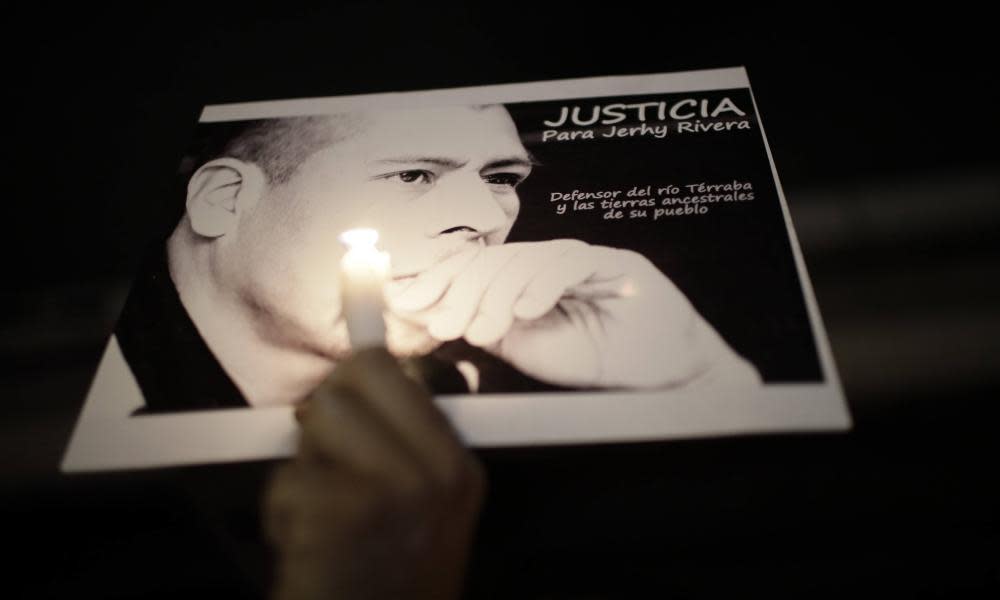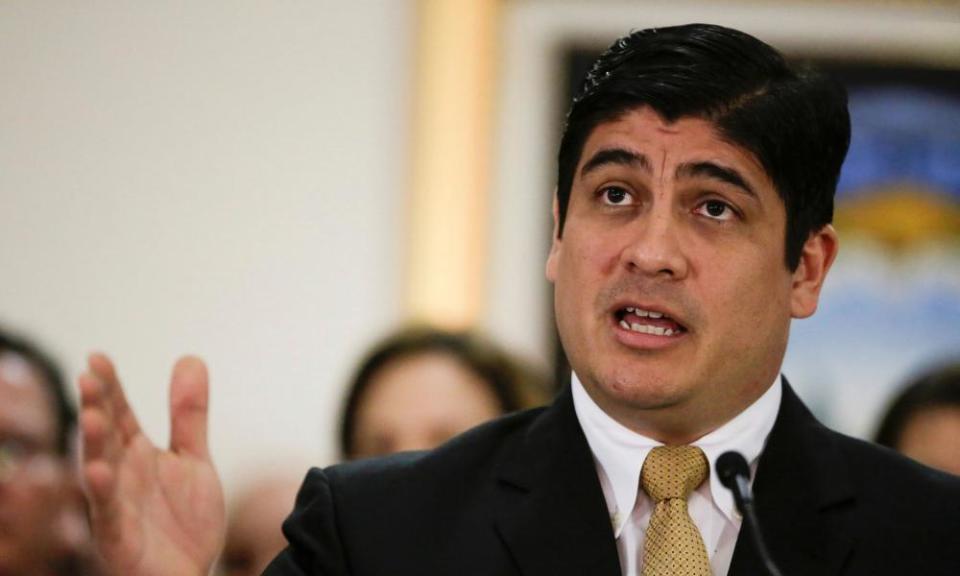Costa Rican president pledges to protect indigenous rights after activists murdered

Costa Rica’s president has pledged to protect the rights of indigenous defenders following a spate of violence against native communities in his country.
Last month, an activist, Yehry Rivera, from the Brörán indigenous community in Térraba, Puntarenas province, was shot and killed after he was attacked by an armed mob while trying to reclaim ancestral land. The murder happened just two weeks after an indigenous leader of the Bribri indigenous people in nearby Salitre was shot in a surge of unpunished violence against native communities in Costa Rica.
Conflicts over land rights in Central America have driven a wave of violence and murders against indigenous activists in the region. In Costa Rica, activists have warned that state inaction over the violence is a question of political will.

In an interview with the Guardian, the Costa Rican president, Carlos Alvarado, said he was committed to protecting indigenous land rights while making sure non-indigenous people living in protected areas were compensated.
“I believe one of the problems has to do a lot with the enforcement of those rights. In 1978, many lands were declared indigenous territories. But from that time until today, the state of Costa Rica has not had the capacity – mainly economic – to protect the land rights of the people,” he said.
“There were people that were there before that declaration that have rights also. But after 1978, many people had entered the lands and, in some cases, bought that land without it being possible. Today, the situation we need to fix is that we need to preserve the rights we’ve already recognised and at the same time provide solutions for many of the people that for many years have lived in the lands.”
Under the 1977 Indigenous Act in Costa Rica, 24 territories are protected for people with historical ties to the area. Despite legal recognition, these land rights have never been formally implemented, causing the Brörán and Bribri people to retake possession of their ancestral land.
Earlier this month, the Inter-American Commission on Human Rights expressed its concern about the situation in the Buenos Aires area of Puntarenas province, the centre of the violence, a year to the day after the murder of Sergio Rojas, a Bribri land and human rights defender.
“We recently started the first fund for buying land and for compensation,” Alvarado said. “We are going to be presenting a bill in the national assembly as well to provide a solution both to recover the lands of the indigenous but, at the same time, have an integral solutions for the people that are Costa Ricans that need a livelihood solution. These are quite complex solutions but we are addressing it and we are following all the rights, not only on the rights of Costa Rica and international conventions, but also the commission on human rights in the region.”
But Vanessa Jiménez, a lawyer for Forest Peoples Programme who works with indigenous defenders in Costa Rica, questioned the president’s framing of the situation.
“This is an issue of political will, not economics. In Salitre alone [where Rojas was murdered last year], eight eviction orders have been active now for between five and seven years, but the government has delayed executing them – even before the recipients decided to involve the courts with appeals,” she said.
“And once the evictions are appealed, the executive washes their hands of responsibility, leaving the indigenous peoples at the mercy of hostile illegal occupants and numerous, prolonged judicial cases. The state is wholly responsible for what they call a conflict between indigenous and non-indigenous peoples.”


